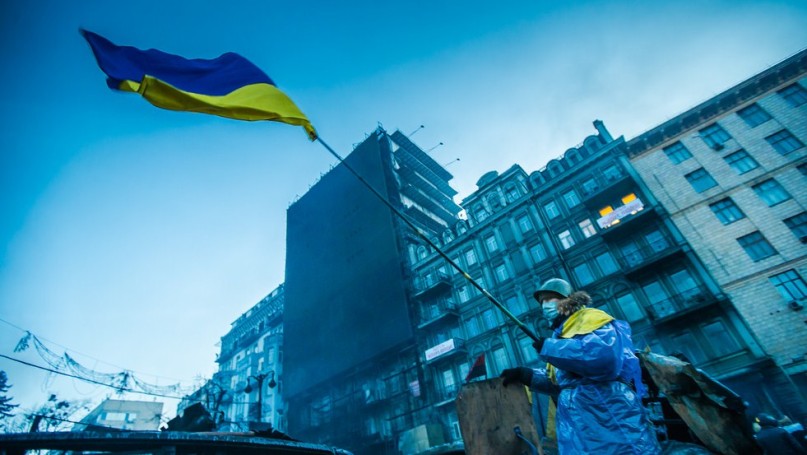
Of all the heat and light emanating from the crisis in Ukraine, the interesting question is whether the March 21st annexation of Crimea belies the existence of an international society. Is it just a comfortable western conceit at odds with the reality that in world affairs, might makes right?
The answer is no. Such criticism rests on a misconception, indeed an unrealistic expectation, of international society as peaceful or even perfect. In actual fact, it has always been, in Hedley Bull’s words, “a precarious achievement”. The society of states rests upon a consensus among its members that shared understandings underlie coexistence and cooperation but that these are subject to contestation – especially by The Great Powers.
Indeed, the role of the Great Powers is oft regarded as inconsistent with international society. What place can there be in an “anarchical society” for any vestige of hierarchy or hegemony? (see Ian Clark for more here) The reasoning is that a society where Great Powers can disregard not just ground rules like sovereignty, non-intervention and multilateralism, but the criticism that comes with such breaches, is in fact just a Hobbesian system.
But this is to rely on a false domestic analogy, whereby transgressions of the law are punished and all members of a society are equal in rights and responsibilities. Yet inequality is often a pervasive feature of all domestic societies and yes with great power does indeed come great responsibility, as testified by Chapter Five of The UN Charter. Thus being a Great Power is a matter of social recognition as well as material might, and so international criticism matters even if it doesn’t change outcomes.
This is because international society is a messy place where juridical equality awkwardly rubs shoulders with inequality of capability. But crucially one where coexistence, cooperation and order is underwritten by social norms as opposed to self-interest alone. So does the violation of such norms not show up international society as a fiction?
Well, for two reasons that Russia’s breach of international norms over Ukraine is not the same as a total disregard for them. Firstly, Russia in common with all states is loath to be painted as deviant or an outlaw and has sought to justify its actions before the Security Council (particularly on the occasion of their March 15th veto) as legitimate in line with precedent and other principles such as self-determination and defence of minority rights.
Now whether these are accepted or not, and the March 27th General Assembly vote would indicate it was the latter, that Russia made such normative claims is telling about the nature of international law within international society, and this brings us to point number two. The efficacy of international law is not to be measured by its causal effect on state behaviour alone. For whilst, as Louis Henkins remarked, “most states obey most laws most of the time”, there can be no denying that Russia has on this occasion (as others have done before, and will continue to do after) broken international law in the form of Article Two of The UN Charter and The 1994 Budapest Memorandum. However, to say that this proves international law to be ineffectual is to set it the impossibly high test of constraining Great Powers from acting in their (perceived) national interests in the absence of a centralised authority or enforcement mechanism. International Society being as Bull wrote, an anarchical one, and as Andrew Hurrell recommends, a pluralist one at that.
To be clear, the breaking of international law and in particular a ground norm such as sovereignty, by any state, big or small, is a serious challenge for a rule governed order and therefore international society. But it need not be a death knell, as long as the violation is recognised as such, condemned and costs imposed.
Perhaps paradoxically, the vocal reaction against the violation of the norm demonstrates its strength more than its weakness. The real death knell to international society would be if the violation went unremarked or was mourned only in passing. As Ian Clark surmises, international society is sustained as long as states continue to believe themselves bound by it, and so no single breach of its norms alone can nullify its existence.
So Crimea is a problem both of and for international society, in the sense that the crisis and the reaction to it demonstrates both the existence and the limits of that society.
Further Reading on E-International Relations
- Opinion – Trump, Shattered Diplomacy and International Society
- Opinion – Civil Society Participation in International Criminal Justice
- Opinion – War in Ukraine: Why We Should Say No to International Civil Society
- The Challenges to Middle Eastern International Society: A Study in Disorder
- The Trojan War in Crimea
- Racism, Crimea and Crimean Tatars